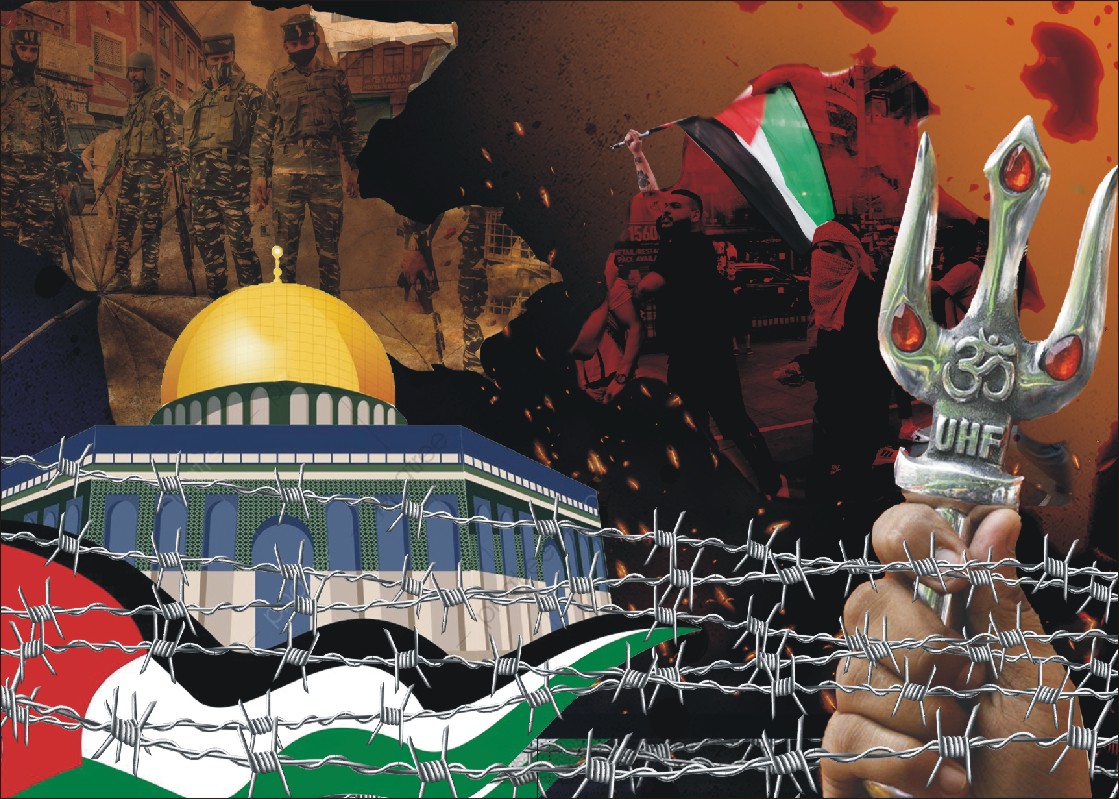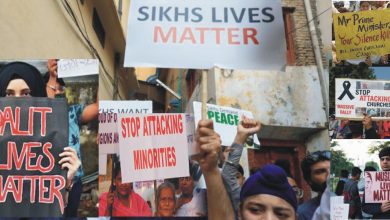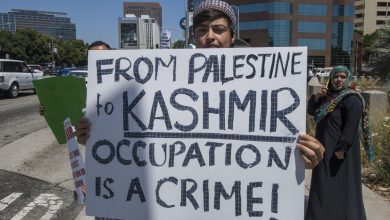
Srinagar: Political experts and analysts have highlighted the growing collaboration between India and Israel in coordinating their strategies of occupation in Jammu and Kashmir and Palestine.
According to Kashmir Media Service, they argue that the tactics employed by Israel in Palestine are increasingly mirrored by India in occupied Jammu and Kashmir (IIOJK).
Analysts have noted that both India and Israel are inflicting similar forms of violence on their respective populations, with the Modi regime aggressively adopting Israel’s model of occupation in IIOJK. This includes the recent domicile law, which critics claim mirrors the Israeli settler colonial agenda aimed at altering the demographics of the territory. Such strategies, suggested by Israeli practices, have raised alarms about the potential long-term consequences for the Kashmiri people.
Experts emphasize that India and Israel represent two facets of the same oppressive regime, as both peoples—Kashmiris and Palestinians—have been striving for their rightful freedom for over seven decades. They continue to demand their UN-recognized right to self-determination.
They urged the international community to step up efforts to assist the people of IIOJK and Palestine in reclaiming their birthright. Observers warn that global peace and stability are intricately linked to resolving the Kashmir and Palestine disputes.
Moreover, the close military partnership between India and Israel poses a significant threat to humanity and global peace, as both nations are seen to be blatantly violating international laws in their respective territories.
As the situation unfolds, they stressed the need for a concerted global response to these pressing issues becomes increasingly critical.








